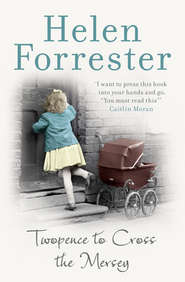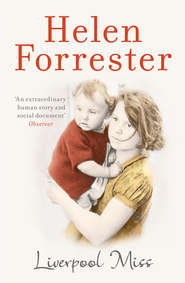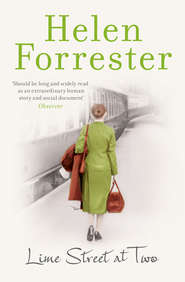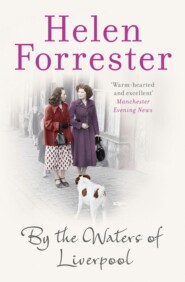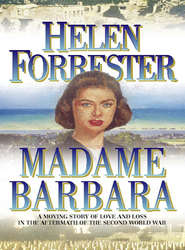По всем вопросам обращайтесь на: info@litportal.ru
(©) 2003-2024.
✖
The Liverpool Basque
Настройки чтения
Размер шрифта
Высота строк
Поля
He himself had been born in England, in the port of Liverpool, and he spoke English with a pronounced Liverpool accent. Nevertheless, he would affirm indignantly that, like his father and grandfather before him, he was a Basque and very proud of it. For the benefit of Canadians, he would add, also, that he was proud to be a Canadian citizen – but he was still pure Basque!
He had married Kathleen Weston, a Vancouver Island girl, whom he had met, during the war, in Halifax, Nova Scotia. She had tried several times to learn his native tongue, but had finally given up, arguing that his command of English was so good that they could communicate perfectly in that language. Because he had spoken to her consistently since babyhood only in Basque, his daughter Faith understood the language – but she would always answer him in English. As for Lorilyn, his only grandchild, now aged nineteen and doing her first year at the University of British Columbia, she would laugh and tell him to stop ‘talking funny’ and speak English.
Sometimes, without his Canadian Kathleen to support him, he wondered why he stayed in Victoria. He frequently longed for the familiar dockside streets of Liverpool, for the warmth and friendliness of the Baltic Fleet or the Flags of all Nations, both pubs that he remembered as being packed with an international gathering of seamen, all talking exuberantly at once. And he wanted to hear again St Peter’s church bell calling him to Mass, a Mass celebrated in Latin. He could go to Mass in Victoria; he could even ease his soul by going to Confession; but it would all be in English, as lately ordained by the Vatican, and would have little of the comforting magic of a Mass chanted in Latin, as it had been when he was young. The Latin Mass, untouched by war or pestilence, unchanging like God himself, had been a dear familiar ceremony, no matter how strange a port his ship had been tied up in. If he had to listen to Mass in the vernacular, he wanted to hear it in Basque – and for that he would have to return to Vizcaya, the province of his forefathers.
He sighed as he turned from Kathleen’s grave and began slowly to make his way homeward under the dripping pine trees. Both Liverpool and Vizcaya were a long way off; journeys to either of them were not to be undertaken lightly by an eighty-four-year-old. Then there was Faith who lived with her Canadian husband, George McLaren, in Vancouver; she was his living link with Kathleen. She did come occasionally, with her family, to visit him, but never frequently enough. He would smile when he thought of her and try to shake off his depression. Yet, sometimes when he could not sleep, a fearful inner loneliness would overwhelm him to the point of terror, and older voices called him, voices of others whom he had loved, Basque voices, Liverpool voices, people who were part of his very nature, people he had not been able to tell Kathleen much about.
He knew that he dreaded dying in this pretty city on the west coast of Canada, even if they laid him beside Kathleen. It was too lonely – a single Basque name in a cemetery full of British pioneers. Kathleen was amid her own, but he would not be.
He wanted, at least, to lie in a Liverpool churchyard or cemetery, surrounded by headstones with Basque names on them, to be laid to rest by Basques speaking either the thick colloquial English of his childhood friends or the language of his roots, Basque.
As he pushed to one side a rain-dropped branch of Scottish pine, he considered soberly how strange it was that, when he thought about his own death, all that had happened to him in Canada was wiped out of his mind, even the long, contented years with Kathleen. What was left – the essence of himself – was Liverpool Basque; and he wanted to lie with his parents and grandparents and friends in a corner of Liverpool they had made their own. Afterwards, he wanted toasts to his memory drunk in wines familiar to him and funny stories told about him in pithy Basque phrases.
Back on the pavement that led to his home, he shivered. It was not easy to have a conscience formed by Jesuits in the back streets of Liverpool. They taught perfection – but an ordinary man could do only his best – and he had done his best for Kathleen.
Chapter Two (#ulink_3db86357-afcc-5489-bff9-fbc878abcc88)
Although the morning’s winter storm had been so intense and Victoria’s Scenic Drive had been, for once, deserted, Manuel’s expedition had not gone unnoticed.
Seated in the bay window of the bungalow next door, Sharon Herman, daughter of an old friend of Veronica Harris, had noted with mild interest the very old man going for a walk despite the inclement weather.
She was a nurse who specialized in the care of the terminally ill, and she had just arrived to take up a position in a local hospital about to open a palliative care ward. Her interest in the elderly pedestrian was kindly and caring – she felt he should not be getting soaking wet at his age.
She turned towards Veronica, who was seated at her computer across the room, trying to unravel the complexities of Townsman’s Tailors’ accounts outstanding. An elderly widow, who lived alone, she earned her living by keeping the accounts of small businesses in the neighbourhood. Today, she was finding it difficult to work with someone else in the room, though she did not grudge, in the least, offering her friend’s daughter temporary accommodation until she found herself a flat conveniently close to the hospital.
‘Veronica, who’s the old man next door? He’s just gone out – in this weather! He’ll get soaked – hasn’t he got a car?’
Veronica turned impatiently towards Sharon. Then she glimpsed through the bay window the bent figure plodding up the road. Her expression changed, and she smiled. ‘Oh, that’s Manuel Echaniz – Old Spanish, Kathleen’s husband. She was the friend I told you about – died of cancer.’
‘Is he Spanish?’
‘No. Kathleen told me he was born in the UK. She said he’s a Basque, whatever that might be. He speaks English and Spanish – and his own language, which only Faith seems to understand – that’s his daughter, you know.’ She paused to rub her eyes, tired from concentration on the computer screen. Then she said, ‘He’ll be going up to the cemetery.’
‘Does he work there?’
‘No. He goes up every day to put a flower on Kathleen’s grave. I’ve never known him miss a day since she passed away – must be eight years now.’
Sharon laughed. ‘You’re kidding?’
‘No, I’m not. You should’ve seen them together. They were great!’
Sharon moved uneasily in her chair by the window, and her book slid off her lap. She bent to pick it up. ‘He could take some flowers up every week – it would save him time. Or he could drive up on a day like this.’
‘Well, he does have a car – he doesn’t use it much, though.’ She smiled indulgently. ‘Weather never bothered him – I guess because he went to sea for years. And as for going every day, he told me once he wanted her to know that he thought of her each day.’ Her smile faded, and she sighed a little despondently; she had often wished that Manuel would think of her every day. He still seemed to her an attractive man, with his wide smile and twinkling black eyes. His finely lined face was still healthily tanned, and the long, narrow shape of it, with its flat cheekbones, still had the firmness of a much younger man.
‘Sounds like an old movie,’ Sharon was saying, as she put her book on a side table. ‘Do you think he’s got a screw loose?’
‘Not him! He’s in his eighties now, but there’s nothing wrong with his brains – and I’ve never known him be sick.’ She hesitated, and then added, ‘He’s a great old guy.’
Sharon made a wry mouth. ‘Veronica, you’re too sentimental,’ she teased. ‘Men aren’t like that. Do you think he feels guilty about her in some way?’
The question irritated Veronica. Sharon, still smarting from a recent divorce, might be bitter about men – but she was, Veronica felt, being very unfair to Manuel.
‘You’ve read too much pop psychology,’ she responded huffily, and swung her chair round to face the computer screen again. ‘I would have thought that you, with your special training, would know how long a person can grieve.’
The rebuke, from a woman who was usually very mild-mannered, jolted Sharon. She realized that the question had arisen from the resentment she still felt as a divorcee. Veronica was right; each individual needed his own time in which to recover from bereavement.
Ashamed, she inquired in a conciliatory tone if Veronica would like her to make a cup of coffee. Privately, she thought how glad she would be to begin her new job on the following Monday; it would take her mind off her own troubles.
Thankful to get her guest out of the room for the moment, Veronica said politely that she would like a cup very much, and the coffee was on the bottom shelf of the cupboard next to the sink. She wished heartily that the rain would ease, so that Sharon could resume her hunt for an apartment.
In the cluttered kitchen, Sharon put a clean filter in the coffee maker, followed by spoonfuls of coffee. She swore softly as the old kitchen tap spattered water over her when she turned it on. After filling the pot, she stared with some despair through the kitchen window at the sweeping rain. The weather was as cold and dismal as she felt herself; her only consolation was that Winnipeg, from which she had come a couple of days before, would be suffering infinitely worse temperatures. In her pocket lay a well-thumbed last letter from her lawyer, enclosing his final bill for negotiating a parsimonious settlement with her husband. The letter wrote Finis to a whole segment of her life.
Divorce had been much more painful than she had expected. After seven difficult years of a childless marriage, she had anticipated a sense of joyous freedom; instead, she felt a numbing sense of loss. Was this how one felt after a bereavement? Was this how Old Spanish felt? God help her, if she still felt like this at the end of eight years. One thing was certain, her husband would never waste time putting flowers on her grave.
She had worked all her married life. Now, she was going to start anew, away from the people who had known her when she was married. It was the kind of work which would demand a great deal from her, as she dealt with the dying and with their grief-stricken families; yet, she knew from experience that the close relationship between patient and nurse was not a one-way situation; at no time did one come so close to a person as when that person was on his or her deathbed. Beside that experience, she considered as the coffee percolated, what was a divorce? Particularly when there were no children involved.
She carefully poured the coffee into two mugs, and told herself sharply to cheer up. After the coffee, she would go out to look at the apartments she had marked in the newspaper rentals column. Blow the rain. She took Veronica’s mug to her, and drank her own coffee despondently in the kitchen. Then, she quickly put on a raincoat, and took Veronica’s umbrella off a hook in the hall cupboard. Opening the door into the living-room a crack, she called to Veronica that she was going to look at an apartment and that she was not to bother about lunch for her. Then, map in pocket, she went firmly out into the rain.
The rain was lessening and the umbrella hardly necessary. She remembered suddenly her parents still living together in their Florida condominium and managing to keep extraordinarily well for their age, under the Florida sun. Married for thirty-five years, she considered with some wonderment, as she crossed the road at a traffic light. How did they do it? Old Spanish must have been married at least as long. Some people had all the luck.
But was it luck? Or was it some secret formula that the older generation used to build a happy marriage? Cynics said they stuck together because women had no means of earning a living, but it could not be that alone, because even slaves in the States who had no hope at all used to run away.
She looked up to check the street number of an apartment block and then absently pressed a bell marked Building Manager. No matter what the secret is, this is where you begin all over again, she told herself as she waited for a response.
Chapter Three (#ulink_ac5a6117-93ba-507b-8f3d-0a5bc5f77d3e)
Unaware of the interest he had sparked in Sharon Herman, Old Manuel stood in his narrow back hall and shook the rain off his beret and oilskin before hanging them to drip in a small washroom by the kitchen door. Without them, dressed in a white shirt and sleeveless pullover, he seemed extremely frail and thin. As he paused for a second to watch the water running down the oilskin, he smiled to himself; his daughter, Faith, was always warning him to keep himself warm and dry. At his age, she told him, he must take care not to get wet.
He would always tease her by replying that Basques had been pounded by rain in their native mountains for at least five thousand years, and they were immune to it.
He slowly heaved off his Wellington boots and laid them neatly in a boot tray. Like many men who had been to sea, he was extraordinarily neat, because he was used to making the most of the tiny space of a ship’s cabin.
In his thick white socks, he padded into the kitchen to find something to eat for lunch. He slapped a cheese sandwich together and then plugged in the kettle to make some instant coffee, and looked forward to the nap he always took after the midday meal.
As he put his plate and coffee mug down on the kitchen table and pulled out a chair, he asked himself ruefully, ‘Manuel, my lad, what have you come to, when all you look forward to is having a nap?’
The answer was a resigned shrug of one thin shoulder; he had sensed lately that his time was running out.
He decided that after he had slept a little, he would ring up his friend, Jack Audley, and suggest that he should come over for a game of pool on the billiard table in the basement family room. Jack was twelve years younger than he was, but they shared a common interest in fishing and ships – Jack had been a merchant seaman, too.
To help him get through his days without Kathleen, Manuel structured them as meticulously as he could, so that all the necessary domestic tasks and the garden were attended to. Sometimes, however, a thoroughly wet day upset the schedule.
If Jack was not at home, he thought, he would write to his young Liverpool cousin, Ramon Barinèta. He had already, on the first of the month, written to his oldest and dearest friend, Arnador Ganivet, another Liverpool Basque, who had been a Professor at the University of Liverpool, and he smiled gently at the recollection. Between himself and Arnador there was a frankness and concern for each other which probably exceeded that which might have been built up had they both spent their lives in Liverpool; the older they grew, the richer became the correspondence.
After supper each day, he added a page or two to the memoirs of his early life, which he was writing for the benefit of his granddaughter Lorilyn. He had a vague hope that, when she was older, she would read them and become interested in her Basque forebears. At times, her youthful scorn at his pride in his ancestry had hurt him so much that he longed to slap her; her ignorance of the world and its people, despite thirteen years of education, was absolutely abysmal, he fulminated. In frustration, he took to buying her, for her birthdays, books on European and Asian history. As far as he could tell, she never read them; the books were put on the bookshelf in the McLaren family room, their dust-jackets unbesmirched by handling, their pages stiff from never having been turned.
He never quite gave up on her immutability, though he had long since done so in the case of her mother.






